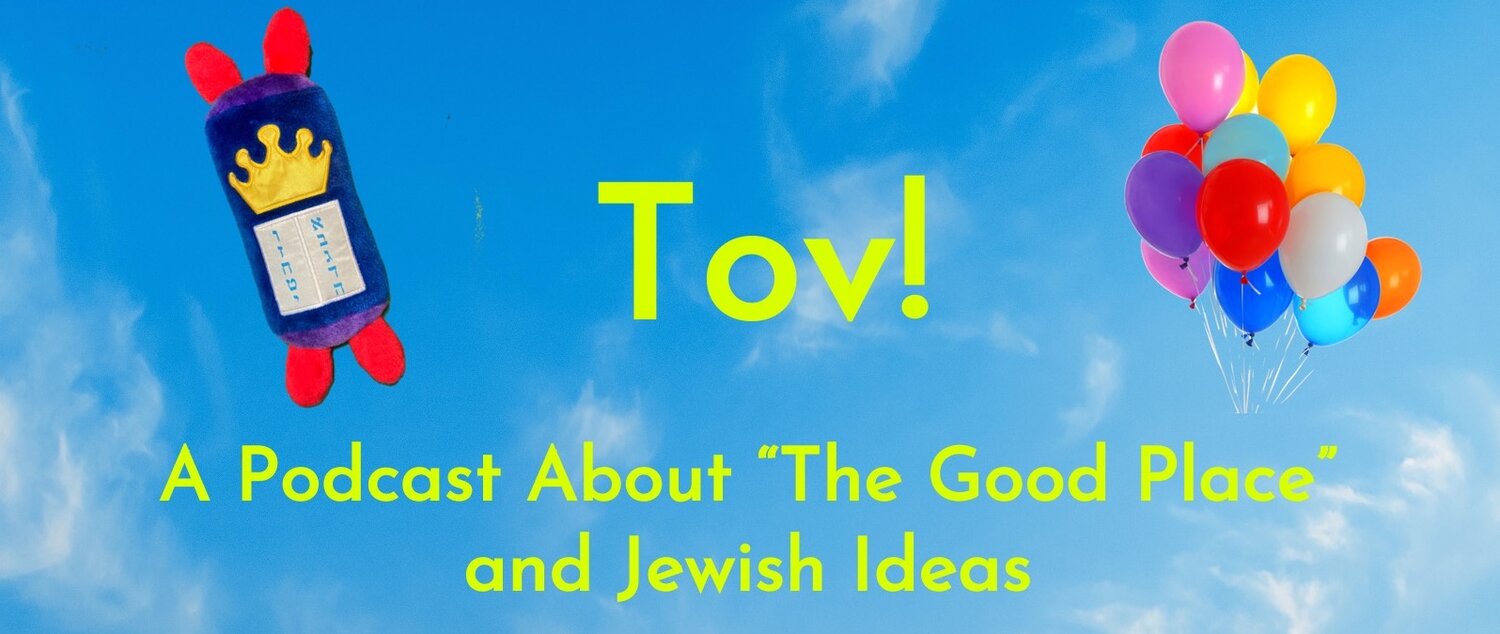Chapter 38: Points and Counterpoints
On The Good Place, Michael and Shawn battle before the Judge over whether the complexity of modern life, coupled with the four humans’ progress, require a reassessment of the point system. Chidi comes up with the idea of a new experiment involving different humans, and the Judge tweaks the ground rules before ordering Michael and Shawn to comply. On the podcast, Daniel Kirzane and Jon Spira-Savett scamper widely across Torah and Talmud in our own tweak of the podcast’s ongoing attempt to synthesize points, intentions, and teshuvah in an elegant way. We discuss whether life was in fact less complex in the past, and whether the way we ourselves (and others) tell our stories looking back can actually change the point value of our actions retroactively. Also, Daniel tells us about being one of the #tomatorabbis, supporting the Coalition of Immokalee Workers in a successful campaign that has transformed the ethics of tomato consumption in the past decade!
Special: Eric Kissack, Editor on The Good Place!
Our first conversation with someone involved in creating The Good Place, editor Eric Kissack! Eric talks with Sari, Rebecca, Dan and Jon about what an editor does generally, and what it was like to collaborate with Michael Schur for all four seasons. Eric reflects on some of his favorite episodes and moments, both professionally as an editor and as someone engaging with the show’s themes. He shares what he learned about the ethical life through his involvement in the show. We compare notes on the creative and editing processes for TV creators and rabbis, and the use of humor in our respective professions when it comes to teaching about ethics.
Chapter 37: Righteous For One’s Generation?
On The Good Place, the group arrives at the Good Place and encounters Gwendolyn and the Good Place committee, and Tahani tries to help Janet and Jason deal with the revelation about their prior relationship. On the podcast, Leora Kling Perkins and Jon Spira-Savett explore, apply, and wonder about the Talmudic concept of “righteous in one’s generation”, which is initially suggested in a discussion judging Noah’s action in the terrible world that preceded the biblical Flood story. If standards really are relative to the times, is there a way to know how demanding they should be?
Encore: Yom Kippur Should Be a Dance Party (Chapter 23)
For this week of Yom Kippur, the Jewish “day of atonement”, we bring you again our earlier episode that addresses the themes of the holy day and suggests a Good Place-style addendum to the traditions of the day! Look for a brand new episode from us soon, and then a special with our first show insider, editor Eric Kissack!
On The Good Place the group spends a last night listening to music and dancing and reflecting individually and in pairs, before leaving the neighborhood and resolving to make their way to the actual Good Place. On the podcast, Rebecca Rosenthal and Jon Spira-Savett talk about teshuvah as looking back; consider Hillel’s teaching about self, others, and the importance of now; and wonder if Yom Kippur wouldn’t be better if it were less solemn and more of a dance party.
Chapter 36: Who Am I?
On The Good Place, it’s the iconic “Janet(s)” episode! In Janet’s void all the humans look like Janet; Chidi and Eleanor help each other find who they are and save the universe for now in the process; and Janet helps Michael find who he is as they meet the accountants whose computers tally up all humans’ experiences. On the podcast, Rebecca Rosenthal and Jon Spira-Savett revisit some classic Jewish teachings about knowing yourself and finding out who you are. This episode pairs well with our own Chapter 4, where Rebecca and Jon first talked about the very same themes!

